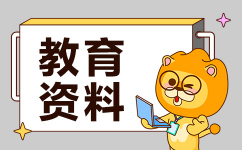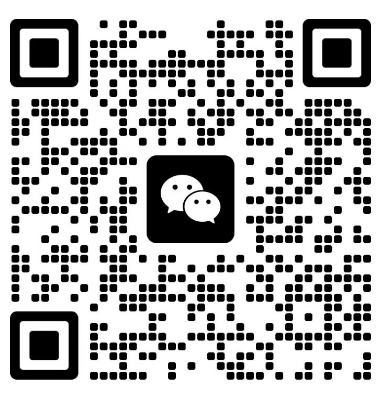下面是小编整理的最新五年级上册英语知识点总结3篇,希望对大家有所帮助。
最新五年级上册英语知识点总结1
Unit 1
一、重点单词old老的,年纪大的
young年轻的,岁数不大的
funny滑稽的,可笑的
kind体贴的,慈祥的,宽容的
strict要求严格的,严厉的
polite有礼貌的,客气的
shy羞怯的,腼腆的,怕生的
helpful有用的,愿意帮忙的
clever聪明的,聪颖的
hard-working工作努力的,辛勤的
music音乐
art美术
science科学
English英语
maths/math数学
Chinese语文,中文
sometimes有时,间或
robot机器人
speak会说,会讲(某种语言);用(某种语言)说话
二、重点句子
1.—Who’s your art teacher?谁是你的美术老师?
—Mr.Jones.琼斯老师。
2.—Is he young?他年轻吗?
—Yes,he is.是的,他年轻。—No,he isn’t.不,他不年轻。
3.—What’s Wu Yifan like?吴一帆怎样?
—He’shard-working.他很勤奋。
4.Ms Wang will be our new Chineseteacher.王老师会成为我们的新语文老师。
5.Heis very helpful at home.他在家很能干。
6.Robin is short but strong.罗宾个子矮,但是身体强壮。
7.He can speak Chinese and English.他会说中文和英语。
8.Hemakes me finish myhomework.他让我写作业。
三、语音字母y在单词中的发音:
1、双音节或多音节词末发[i]。
例:baby happy windy sunny sorry candy many family party婴儿开心的有风的晴朗的对不起糖果许多家庭聚会课外补充:2、y在单音节词末发[ai]
例:by乘坐my我的why为什么cry哭fly飞
四、重点知识及语法
1、询问他人的外貌或性格:
on the weekend在周末
play sports/do sports做体育运动
listen to music听音乐
play ping-pong打乒乓球
二、重点句子
1.—What do you have on Thursdays?星期四你们上什么课?
—I have math,English andmusic.我们上数学、英语和音乐课。
2.—What do you do on Thursdays,Grandpa?
爷爷,星期四你要做什么?
—I have a cooking class with your grandma.我和你奶奶去上烹饪课。3.—Do you often read books in this park?
你经常在这个公园看书吗?
—Yes,I do.是的—No,I don’t.不是
3.Look at my picture.看我的图片。
4.You look tired.你看起来很累。
5.You should play sports every day.你应该每天做运动。
三、语音字母组合ee,ea在单词中的的发音:[i:]
例:feet beef meet see feed tea read eat repeat
脚牛肉遇见看见喂养茶阅读吃重复
注:1、ee组合绝大部分发长音[i:],只有少部分发短音[i],
如:coffee咖啡
3、ea字母组合除了发[i:],还有可能发[e]等发音,
如:bread面包,或者发[ei],如:great好极了
四、重点知识及语法
1、询问做什么事/活动:
—Whatdo you do…?—I often play ping-pong…
询问星期几上什么课:
—What do you have on…?—We have English class…
2、一般疑问句的问与答:
—Do you often read books?—Yes,I do.—No,I don’t.
3、on+具体某一天(年月日,星期),如:onMonday/Tuesday…
课外at+具体时刻(…点钟),
如:at 12o’clock在十二点整
补充:in+大致时间(年月,早中晚),
如:in2014在2014年in the morning/afternoon/evening
3、play+球类、棋类、娱乐活动,如:play football/ping-pong
补充:play+the+乐器如:playthe pipa/piano/violin…
五、重点作文
1、描写一周的生活,如:Myweek
思路导引
(1)开头:简单的自我介绍:Myname’s…/I’m…
3.My/His/Her favourite food isfish.我/他/她最喜欢的食物是鱼。
4.I’m hungry/thirsty.我饿/渴了。
5.I don’t like beef but chickenis OK.我不喜欢牛肉但是鸡肉也可以。6.Onions are my favourite vegetable.洋葱是我最喜欢的蔬菜。
6.I like vegetables but not carrots.我喜欢吃蔬菜但不喜欢胡萝卜。
三、语音字母组合ow在单词中的发音:[au],
例:[au]cow奶牛flower花wow哇down向下
how如何,怎样now现在[slow慢的snow雪
yellow黄色window窗户snowy下雪的tomorrow明天
四、重点知识及语法
1、询问想要吃/喝什么:
—What would youlike to eat/drink?—I’d like…
2、询问最喜欢的事物:
—What’s yourfavourite food/vegetable/…?
—Myfavourite food/…is…/I like…
3、名词复数的规则变化:
(1)直接加s;
(2)以s,x,sh,ch结尾的,加es,如,buses boxes sandwiches
(3)以o结尾,有生命的加es,如,potatoes tomatoes
无生命的加s,如,photos pianos zoos
补充:
(4)以辅音加y结尾,改y为i再加es,如,families babies
以元音加y结尾,直接加s,如,boys days
(5)以f或fe结尾,改f为v再加es,
如knife-knives小刀leaf-leaves树叶
4、some+可数/不可数名词
例:some apples(可数)some water/rice/juice/bread/…(不可数)课外补充:不可数名词(词后不可以加-s/es,所接动词用单数is/V-s/es)液体water milk tea orange(桔汁)coke juice气体air(空气)食物food rice bread fruit肉类meat(肉)fish beef chicken物质work(工作)paper(纸)time music weather(天气)snow money
五、重点作文
1、描述自己和家人最喜爱的食物
思路导引
(1)开头:简单介绍自己的家庭成员:
Thereare…people in my family.They are…
(2)中间:分别介绍每个家庭成员最喜爱的食物时什么:
…favourite food is…/…is…favourite./…like(s)…best.
(3)结尾:穿插说明喜欢的原因:
It’s/They’re…
2、范文:
There are four people in my family.They are my parents,my brother and me.My mother likes salad best.It’s fresh.Beef is my father’s favourite.He thinks(认为)it’s delicious.My brother likes ice-cream.It’s sweet.My favourite food is fish.It’s very healthy.
Unit 4
一、重点单词dance跳舞
sing English songs唱英文歌曲
any+可数名词复数/不可数名词(用于否定句或疑问句中)
例:I can’t do any kung fu.我不会打功夫。
Can you do any kung fu?你会打功夫吗?
课外补充:
1)any还可以用于肯定句,作“任何的”解。
例:Any student can answer this question.
任何学生都能回答这个问题。
2)在表示建议,请求的疑问句中,或期望得到肯定回答时,用some而不用any。
例:Would you like somecoffee?你想来点咖啡吗?
四、重点作文
1、描写自己或家庭成员会做的事情,如:I’m helpful/Super family;
思路导引
(1)开头:介绍自己或家庭成员的基本情况:
I’m…I’m…years old.I have a superfamily.There are three people in my family.They are…
(2)中间:介绍自己在家和在学校里会做的事情/介绍家人的外貌性格以及会做的事情:
I can…at school.I can…at home.My father is strong.He can do some kung fu.My mother is…She can…
(3)结尾:总结This is me.What can you do?This is my family.I love my family.Can you tell me your family?/What about your family?
2、范文:
Hello,I’m Xiao Ming.I’m eleven years old.I’m helpful.I can clean the windows and sweep the floor at school.I can cook and wash my clothes at home.I often play the pipa on the weekend.I can play basketball.I like English very much.I can speak English well.What can you do?
Unit 5
一、重点单词
clock时钟,钟
photo照片,相片
plant植物
waterbottle水瓶
bike自行车,脚踏车
in front of在……前面
beside在旁边(附近)
between在……中间
behind在(或向)……后面
above在(或向)……上面
so many许多
their他们的
lots of许多
dirty肮脏的
near在附近
house房屋,房子,住宅
二、重点句子
1.Your room is really nice!你的房间真漂亮!
2.There is a big bed.有一张床。
下面是小编整理的最新五年级上册英语知识点总结3篇,希望对大家有所帮助。
最新五年级上册英语知识点总结1
Unit 1
一、重点单词old老的,年纪大的
young年轻的,岁数不大的
funny滑稽的,可笑的
kind体贴的,慈祥的,宽容的
strict要求严格的,严厉的
polite有礼貌的,客气的
shy羞怯的,腼腆的,怕生的
helpful有用的,愿意帮忙的
clever聪明的,聪颖的
hard-working工作努力的,辛勤的
music音乐
art美术
science科学
English英语
maths/math数学
Chinese语文,中文
sometimes有时,间或
robot机器人
speak会说,会讲(某种语言);用(某种语言)说话
二、重点句子
1.—Who’s your art teacher?谁是你的美术老师?
—Mr.Jones.琼斯老师。
2.—Is he young?他年轻吗?
—Yes,he is.是的,他年轻。—No,he isn’t.不,他不年轻。
3.—What’s Wu Yifan like?吴一帆怎样?
—He’shard-working.他很勤奋。
4.Ms Wang will be our new Chineseteacher.王老师会成为我们的新语文老师。
5.Heis very helpful at home.他在家很能干。
6.Robin is short but strong.罗宾个子矮,但是身体强壮。
7.He can speak Chinese and English.他会说中文和英语。
8.Hemakes me finish myhomework.他让我写作业。
三、语音字母y在单词中的发音:
1、双音节或多音节词末发[i]。
例:baby happy windy sunny sorry candy many family party婴儿开心的有风的晴朗的对不起糖果许多家庭聚会课外补充:2、y在单音节词末发[ai]
例:by乘坐my我的why为什么cry哭fly飞
四、重点知识及语法
1、询问他人的外貌或性格:
例:house房屋,房子mouse老鼠sound声音,听起来count数数提示:字母组合ow也有些发[au],
例:cow奶牛how如何,怎样down向下
课外补充:字母组合ou在单词中还可读[u:],
如soup汤group群,团体;
四、重点知识及语法
1、there be句型的一般疑问句的问与答:
—Is there a lake?—Yes,there is.—No,there isn’t.
—Are there any animals?—Yes,there are.—No,there aren’t.
2、there be(is,are)句型的单复数形式
例:There is a nature park near the house.
There are many ducks on the lake.
3、some与any在肯定句、否定句及问句中的用法:
some+可数名词复数/不可数名词(用于肯定句中)
例:There are some books on the desk.
any+可数名词复数/不可数名词(用于否定句或疑问句中)
例:There aren’t any peoplein the forest.
Are there anytall buildings in the natures park?
4、people人,人们(集体名词,明为单数,实为复数,词末不能加-s)
例:Thereare many people in the park.
五、重点作文
1、描写景物,如:看图作文(风景图)
思路导引
(1)开头:Look at the picture.
(2)中间:用There is/are…beside/in front of…句型描述图中所有的景物及其位置,注意要有明确的观察主线,即观察的顺序性与条理性。
2、范文
Look at the picture.This is a beautiful village.There are three houses in the picture.There are many trees near them.In front of the houses,there is a river.The bridge is over the river.Behind the houses,there is a forest and a mountain.
最新五年级上册英语知识点总结2
Unit 1 What’s he like?
1.描述⼈的外貌单词
old⽼的young年轻的tall⾼的short矮的
fat胖的thin瘦的
2.描述⼈的性格的单词
kind和蔼的strict严厉的polite有礼貌的clever聪明的
hard-working努⼒的helpful乐于帮助⼈的
3.重点句型
(1)---Who’s your English/music/art/science/maths/Chinese teacher?
(谁是你的英语/⾳乐/美术/科学/数学/语⽂⽼师?)
---Mr./Miss./Mrs./Ms.Jones.琼斯先⽣/琼斯⼩姐/琼斯太太/琼斯⼥⼠
(2)---What’s she/he like?---She/He is clever.
对⼈的性格和外貌提问,可⽤上⾯表⽰外貌和性格的单词回答。

